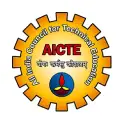Online MJMC
Start your career in media and journalism with DUSOL Online MJMC Course. Learn storytelling, digital media, and communication strategies from industry experts. Whether you aim to become a journalist or content creator, this course prepares you with the right tools. Enroll today to begin.
Program Overview
The DU SOL Online MJMC (Master of Journalism and Mass Communication) is a postgraduate program designed for individuals passionate about media, communication, and digital storytelling. Offered by the School of Open Learning, University of Delhi, the MJMC program provides a flexible online learning platform ideal for both aspiring journalists and working professionals looking to upgrade their skills. This two-year program focuses on key areas such as news reporting, media ethics, digital journalism, public relations, advertising, television production, and communication theories. The course blends practical training with theoretical knowledge to help students gain a deep understanding of the media industry’s evolving landscape.
With a fully online format, students can attend virtual classes, access recorded lectures, participate in webinars, and complete assignments from anywhere. The curriculum is updated to align with industry trends, ensuring students are prepared for careers in print media, broadcasting, digital media, public relations, and corporate communication. The degree is UGC-approved and carries the same value as a regular MJMC degree. It is suitable for graduates from any stream who want to enter the media industry without the constraints of regular college attendance. The DU SOL Online MJMC is a great choice for a future in journalism and mass communication.
Duration & Eligibiity
The DU SOL Online MJMC (Master of Journalism and Mass Communication) is a two-year postgraduate program divided into four semesters, designed for individuals interested in building a career in media, journalism, and communication. The flexible online format allows students to learn at their own pace, making it ideal for both recent graduates and working professionals.
To be eligible for admission, candidates must have completed a bachelor’s degree in any discipline from a recognized university. There is no age limit, and the admission process is generally based on academic merit. The program is suitable for students who wish to pursue careers in digital media, print journalism, broadcasting, public relations, or advertising without attending regular classroom sessions.
Accreditation & Approvals

UGC-DEB Entitled
Approved by the University Grants Commission

NAAC A++ Accredited
by National Assessment and Accreditation Council

AICTE Accredited
by All India Council for Technical Education
| Subject Code | Subject Name | Credit |
|---|---|---|
| MJMC001 | Introduction to Mass Communication | 4 |
| MJMC002 | Communication Skills | 4 |
| MJMC003 | News Writing and Reporting | 4 |
| MJMC004 | Media Ethics and Law | 4 |
| MJMC005 | Media Production | 4 |
| Subject Code | Subject Name | Credit |
|---|---|---|
| MJMC006 | Media Research | 4 |
| MJMC007 | Advertising and Public Relations | 4 |
| MJMC008 | New Media and Journalism | 4 |
| MJMC009 | Media Management | 4 |
| MJMC010 | Project Work | 4 |
Learning Methodology - DU SOL

E-books Study
Material

Live Interactive Sessions

Project &
Assignment

Learning
Managment

Top Studies
Center

Worldwide
Reach
dusol-BA Specialisation
- Anthropology
- English
- Hindi
- History
- Political Science
- Sociology
- Economics
- Mathematics
- Public Administration Sanskrit
- Psychology
- Urdu
dusol MJMC Fees Structure
Before applying for the DU SOL Online MJMC program, it is important to understand the fee structure. The university offers an affordable and transparent fee system suitable for all learners. Below is the detailed breakdown of the MJMC course fees at DU SOL.
| Registration Fee | : | 300/- rupees |
| Course Fee | : | 12,500/- per year (Approx.) |
| Examination Fee | : | 200- Per Subject |
Frequently Asked Question
Yes, the degree is UGC-approved and holds the same value as a regular MJMC degree for jobs and further studies.
Major topics include journalism, media ethics, public relations, advertising, digital journalism, communication theories, and broadcasting.
Yes, the flexible online format is ideal for working professionals and individuals with other commitments.
Graduates can work in digital media, print journalism, television, advertising, public relations, and content creation.



